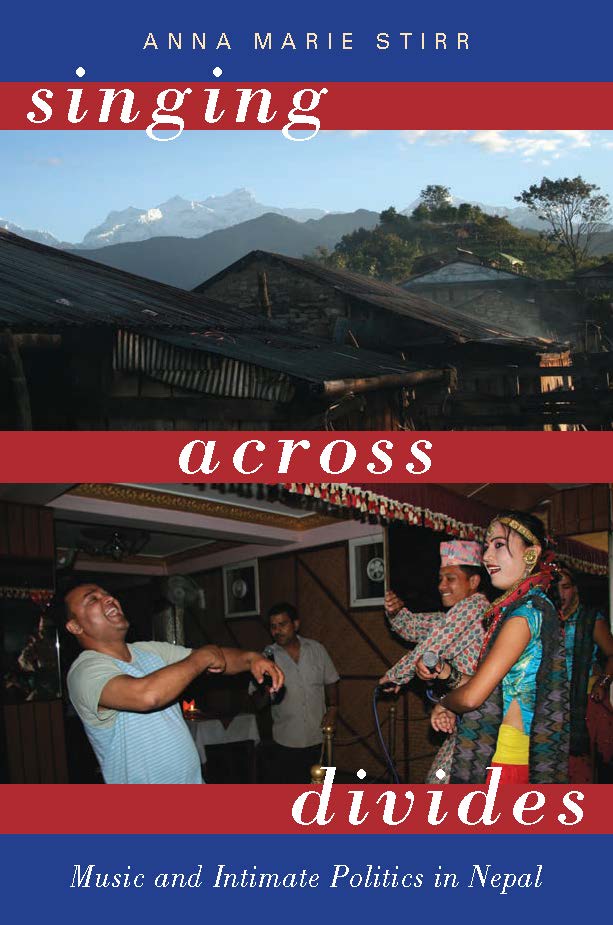
I’m thrilled that my book on dohori song, Singing Across Divides: Music and Intimate Politics in Nepal, has won the Bernard S. Cohn Prize for first books on South Asia, from the Association for Asian Studies.
In this conversation with the AAS’s #AsiaNow blog, I talk about interesting aspects of dohori, obstacles as learning experiences in research, and how I got interested in the whole scene.
Here’s an excerpt:
What inspired you to research this topic?
I knew I wanted to research song, and rural-urban migration. I’d been doing research and working in Nepal since 2000, so it made sense to do this there. I really wanted to learn how rural-urban migrants gave voice to their experiences, and I also wanted to focus on something that was sort of adjacent to the war but that wasn’t the war itself. Then, while I was in Kathmandu doing an internship at an arts NGO in 2005, I met people from all over Nepal who performed in Kathmandu’s dohori restaurants—nightclub-like establishments with stages, dance floors, and full food and bar menus.
When I had first come to Nepal in 2000 there had been a few such restaurants, but over the years of the People’s War, people had left their villages and towns in other districts for the capital. This increase in rural-urban migration provided both a customer base and a steady stream of talented performers, and from three in 2000 the number of dohori restaurants was up to around 80 in 2005. I went to a dohori restaurant with a flutist friend who was in the band, and was immediately captivated.
From an artistic point of view, I loved the improvised sung poetry of dohori, and I loved the things singers were doing with their voices. The atmosphere of drinking, dancing, and revelry in the restaurants reminded me as much of rural Nepal as it did of other bar scenes—as it turns out, replicating the rural Nepali hill festival atmosphere was the whole point. And from an academic point of view, it was clear that that dohori linked rural and urban Nepal at the intersection of multiple identities, and also allowed participants to experiment with changing, crossing, and combining these identities in new ways. So, I was hooked musically and intellectually right away. My methodology became to get to know people in Kathmandu, at restaurants, studios, and concerts, and then go with them to other places, like festivals and fairs, and their own home villages when they invited me.
Read more here.


You must be logged in to post a comment.